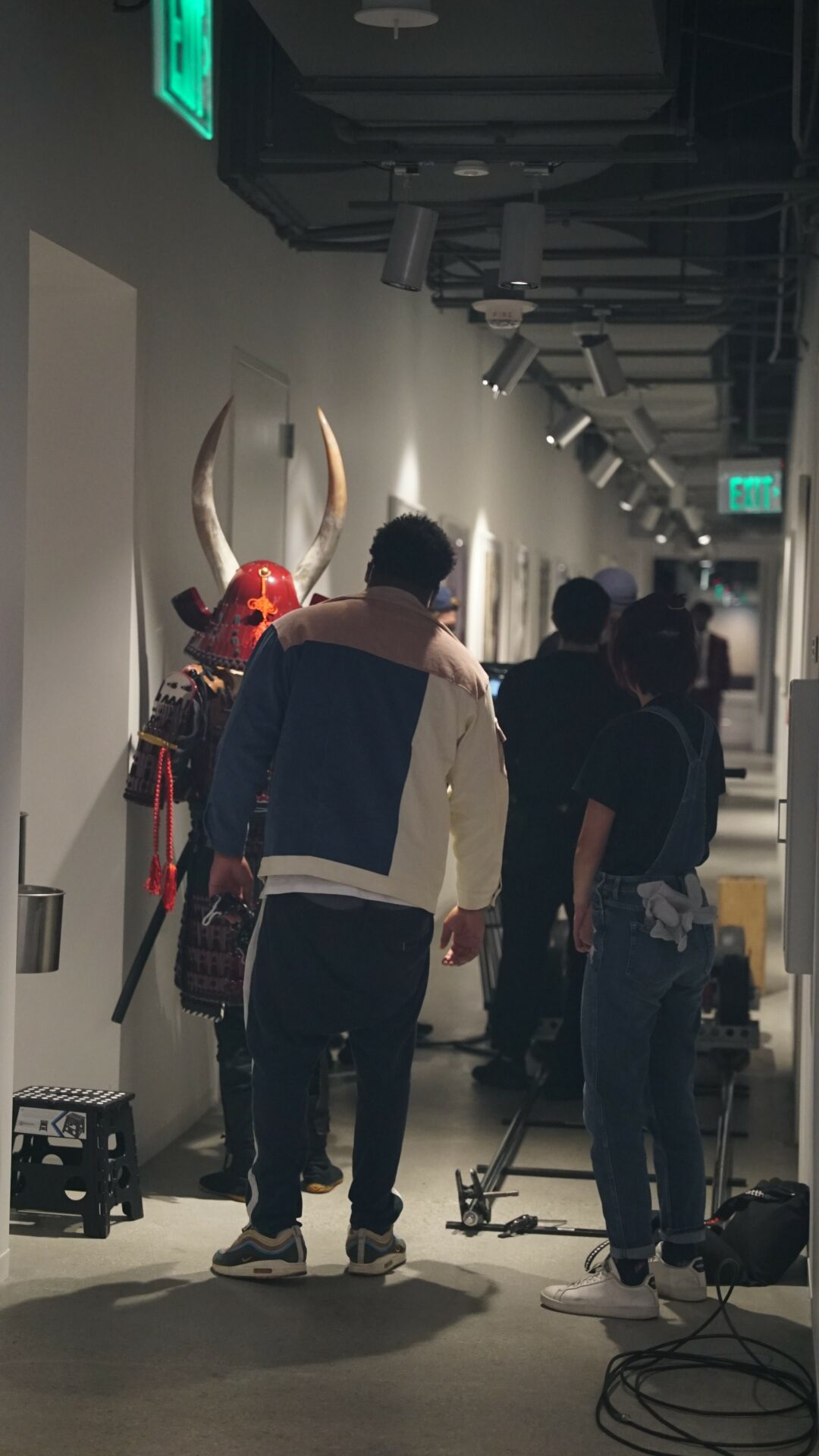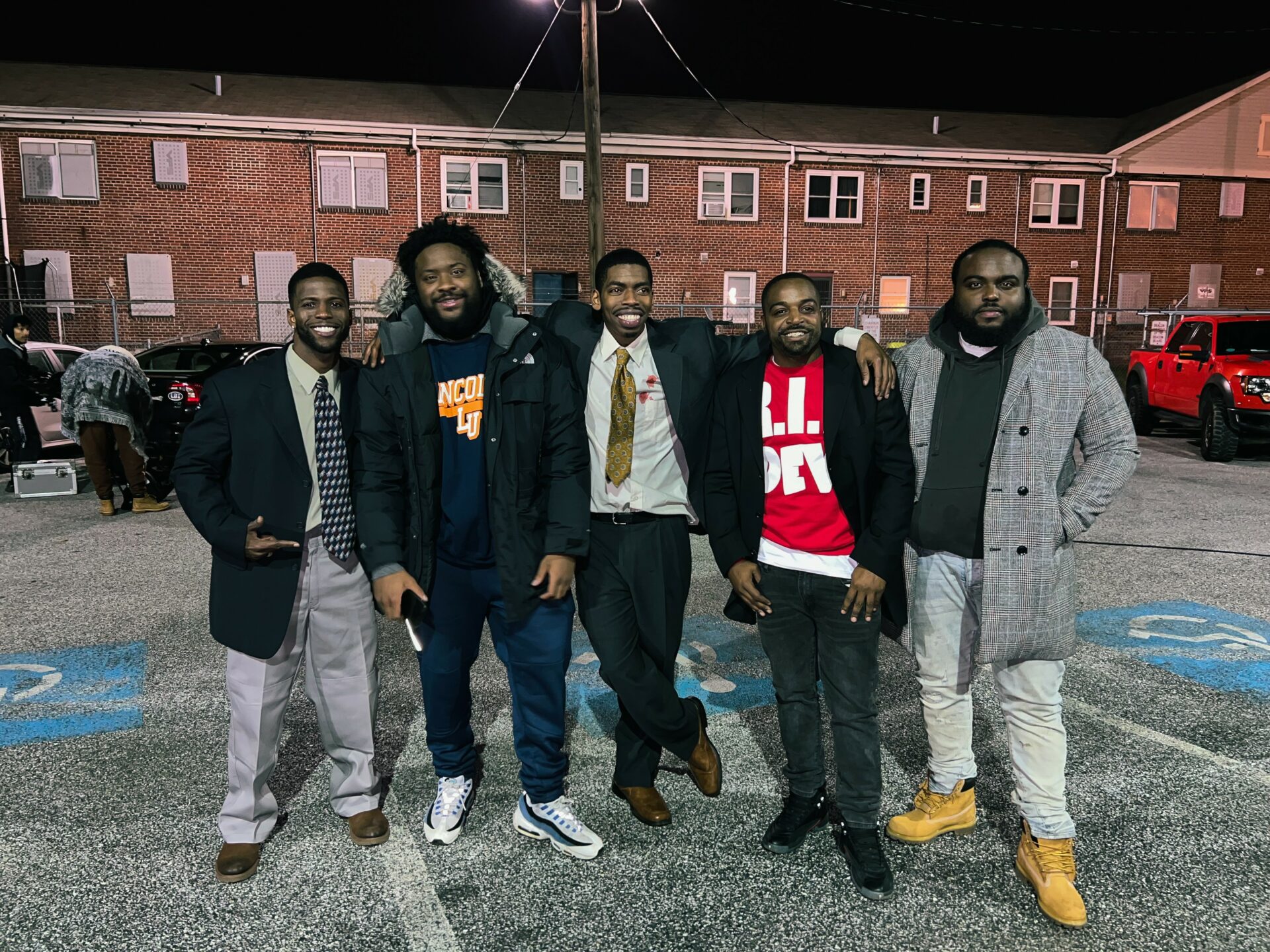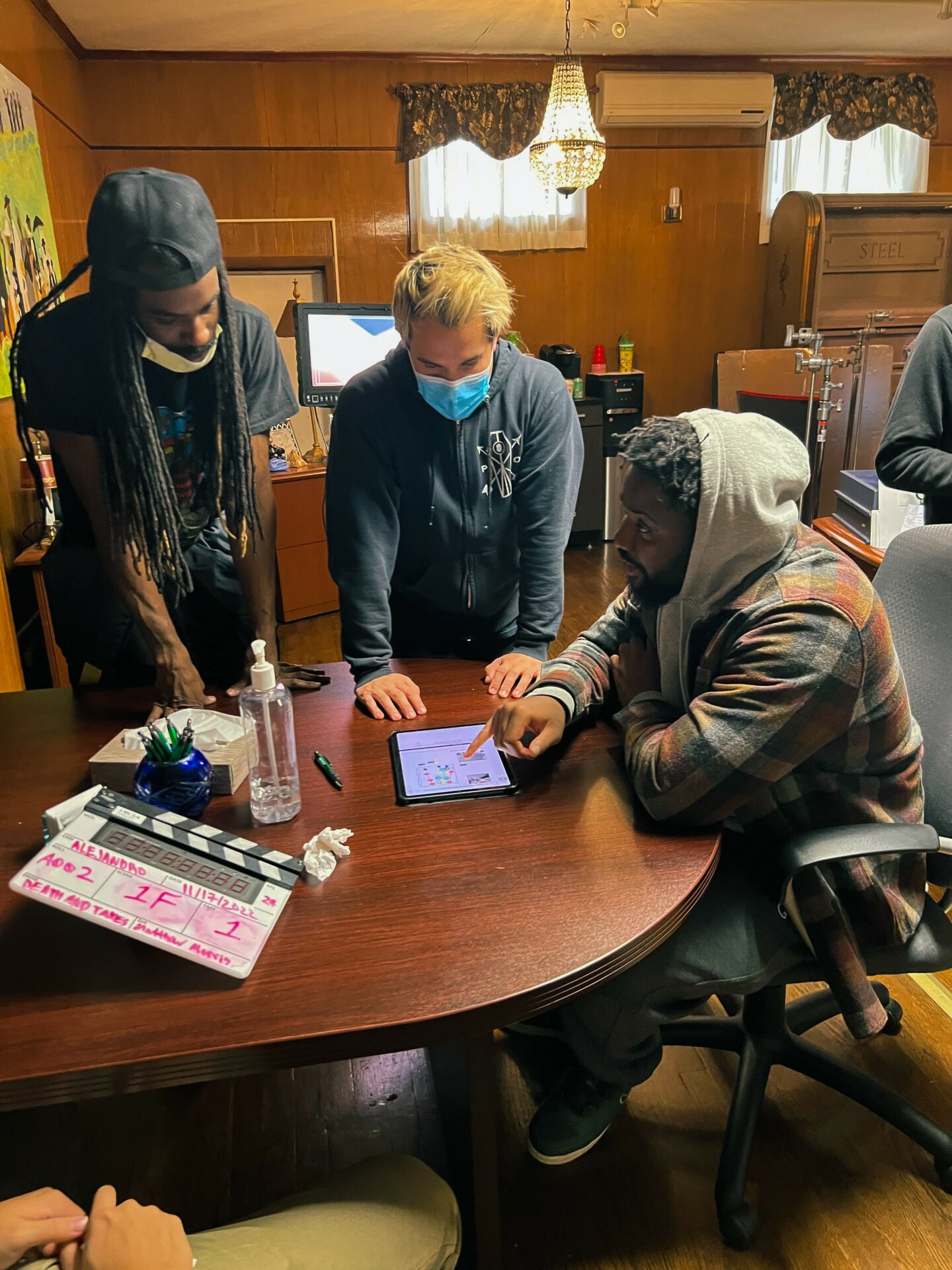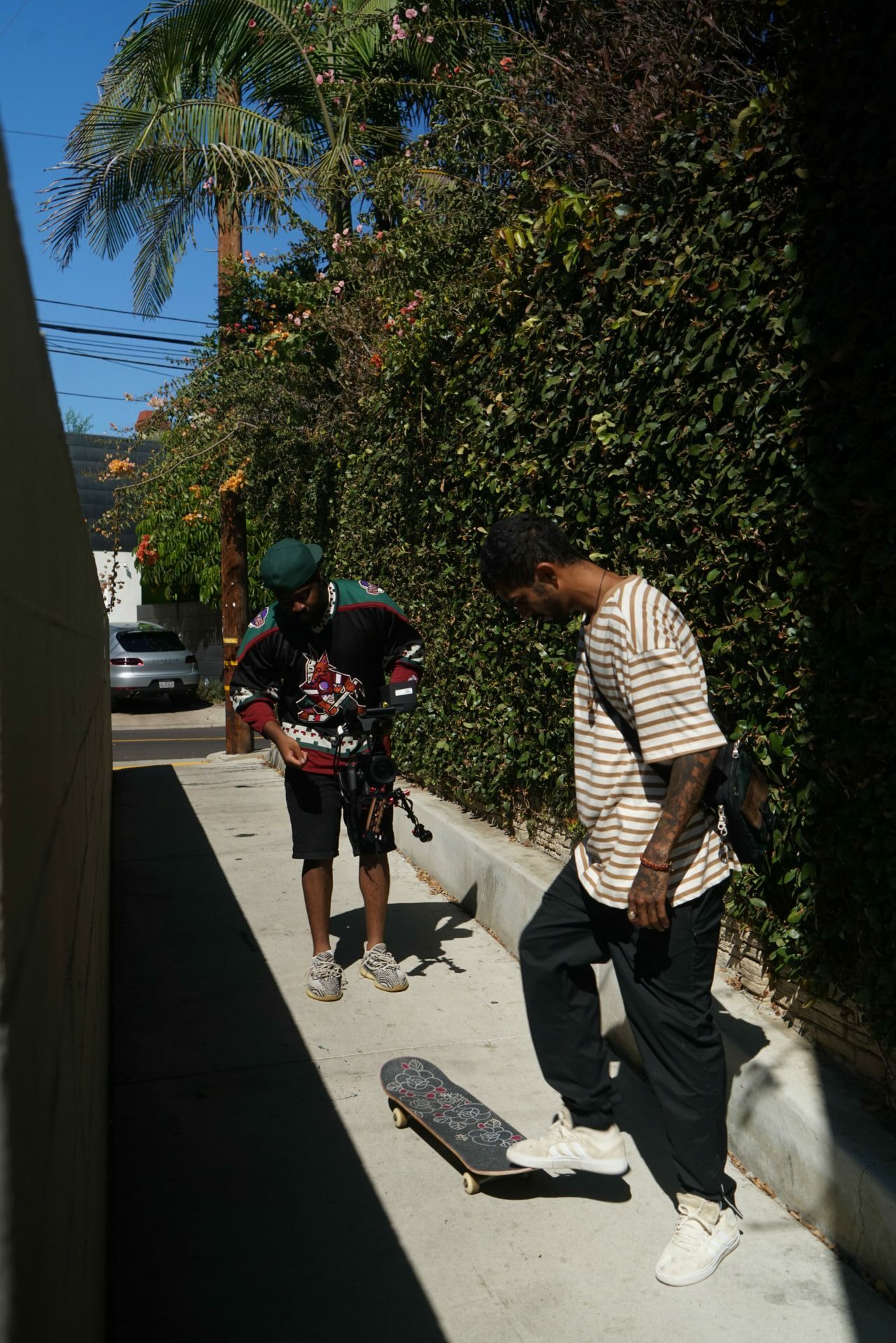Alright – so today we’ve got the honor of introducing you to Matthew Morris. We think you’ll enjoy our conversation, we’ve shared it below.
Matthew, so good to have you with us today. We’ve got so much planned, so let’s jump right into it. We live in such a diverse world, and in many ways the world is getting better and more understanding but it’s far from perfect. There are so many times where folks find themselves in rooms or situations where they are the only ones that look like them – that might mean being the only woman of color in the room or the only person who grew up in a certain environment etc. Can you talk to us about how you’ve managed to thrive even in situations where you were the only one in the room?
Growing up in Philadelphia, I spent the first half of my childhood around family and people who looked like me. As I got older, my Mother got a job teaching in a predominantly white school district that was supposedly at a higher level in education and achievement, so naturally, I transferred to her school district. I went from being in a classroom that was made up of 90% black children to being the only black kid in my class of 30. At the age of nine, I was thrust into my first experience with otherness; I had realized the distinction between class and race for the first time. I had a rough time fitting into this system, for the most part, I got along well with the kids in the class, but the power and control dynamics of the relationship with my teachers became a difficult process. I was a respectful child who had very few behavior issues up to this point, but suddenly, I couldn’t find myself anywhere but in trouble and misunderstood. So much so that I was required to transfer to another school in the district in my fifth-grade year. At the time, I could not comprehend what was happening; I was placed in special classes for occupational therapy as I began to be further pushed into the other category. It took a long time for me to understand that I was not like the other kids, I wasn’t born in this community, I didn’t grow up around money, and I didn’t know how to communicate with this lopsided power system, I spoke my mind, I didn’t sit still, and I didn’t respond well to microaggressions. The process weighed heavy on my Mother, whose job was on the line. She never chastised me, she listened and supported me through the transition, pushing me to develop a high level of discernment. I could read the room at a young age, paying attention to body language and emotional cues asking questions to understand the spaces I was in, so I knew how much of myself to give at any moment. I developed the confidence to know that I am not always the problem paired with the wisdom, to know that being right doesn’t always make it right. Through this process I found power in patience, being able to pick and choose my spots, being the most empathic in a room full of nonempathetic people, allowed my word and perspective to be valued. This is a skill that I’ve been able to use in a multitude of ways to become a successful communicator and leader in spaces where I am the only one.
Let’s take a small detour – maybe you can share a bit about yourself before we dive back into some of the other questions we had for you?
My name is Matthew Morris, I am a film Director, business owner and recent graduate with a MFA from Loyola Marrymount. While in college I helped to found two organizations Black Filmmaker Rebelllion(BFR) and Millinial Junteenth Philadelphia, I served as co-president of BFR and organization that was designed to create space for black student filmmakers on campus to find space to create, collaborate and build community. The first year of the org, we brought together black filmmakers from USC,Chapman and LMU to build community, resulting in an end of the year film festivals hosted at Film Independent Sponsered by the Hollywood Foreign Press. We screened 15 films, and celebrated the work of black student filmmakers. Through out the year we held workshops, created database for crewing and work opportunities, and connected with the community of La through educational programing. We plan on connecting with Highschools in LA this year through a shadowing and film development program. Through Millinial Junteenth Philadelphia, the organization helped to get Junteenth passed as a holldiday in Phildelphia helping to raise over 1million signatures. For the past four years we have, held food drives and community service events leading up to Junteenth, leading to June 19th where we host a festival with, local artist and black venders to celebrate the day. As a filmmaker I am currently participating in the festival circuit, for my thesis a short film called Death & Taxes, produced by TV show Powers producer and writer Andre J. Ferguson. The film was based in Chester discussing the structural economic violence in the city that is built around the cost of a surprise funeral, we follow a Morticians assistant as he is faced with the struggle of preparing his brothers body while, raising money with his family to pay for the cost of the funeral. The Film stars Raising Kannan and David Makes Mann star, Ade Chike Tobert. I am currently working on an educational program in Chester to pair with the film as well as a documentary. I am the co-owner of production company Luna Visions based out of Delaware, we a currently transitioning into the commercial space. Coming up I will be screening Death & Taxes at HBCUs starting at Lincoln University.
There is so much advice out there about all the different skills and qualities folks need to develop in order to succeed in today’s highly competitive environment and often it can feel overwhelming. So, if we had to break it down to just the three that matter most, which three skills or qualities would you focus on?
The three most important qualities for me have been resilience, empathy, and discernment. All these skills take patience and a willingness to suppress ego. For me, being a director is about 10% being an artist and 90% being a leader. The job is leading other talented artistic people to the finish line, which is your creative vision. When you prioritize communicating with your team over your own ego, you will naturally develop the skills of resilience, empathy, and discernment as a by-product.
Before we go, maybe you can tell us a bit about your parents and what you feel was the most impactful thing they did for you?
My parents provided me with a nurturing environment that allowed me to thrive in diverse settings. From an early age, I had the privilege of observing their work and leadership firsthand. Attending the same school where my mother taught gave me a unique perspective on her unwavering dedication to her role and her sincere commitment to helping students day in and day out.
I was fortunate because she wasn’t just a favorite among students due to her kindness or leniency but rather because of her unwavering dedication and honesty. I learned invaluable life lessons not only from my parents’ words but also from their actions. My father, for instance, served as a pastor in the middle of a dangerous project for two decades, assisting people at their lowest points and helping them rebuild their lives, spiritually and mentally.
Through their actions and without explicit instruction, my parents taught me how to be a true leader.
Contact Info:
- Website: https://www.lunavisions.com/blank-mpvle
- Instagram: https://www.instagram.com/director_matt/ https://www.instagram.com/blackfilmmakerrebellion/ https://www.instagram.com/millennialjuneteenth/
- Linkedin: https://www.linkedin.com/in/matthew-e-morris-a29728131/



Image Credits
Alejandro Miyashiro Jarel Ivory Ade Chike Torbert Xava Malik Powel Adrian Hospedale




